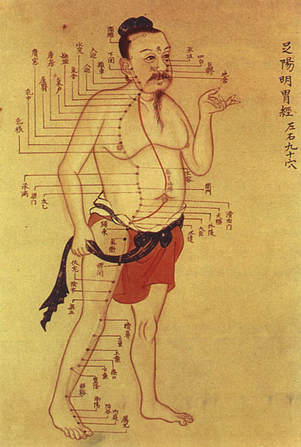 The traditional method of evaluating whether a treatment is beneficial in reducing pain is to measure it against placebo (a sham treatment that has no anticipated external beneficial effect) in a blinded trial (single, in this case, as it is a bit difficult to blind the practitioner as to whether they are giving real or sham treatment) and to use scales and questionnaires for patients to record their pain levels before and after treatment. Although the pain levels will be subjective the scales and questionnaires used are consistent and as such the results from a large population can be considered robust. In this meta-analysis editorial complementary medicine sceptics Colquhoun (pharmacologist) and Novella talk about the lack of evidence of any consistent placebo exceeding effects in over 3,000 papers regarding acupuncture. Recent research by Richard Harris (co-president of the society for acupuncture research) shows that there is an effect on the neurotransmitters in the brain which is very different for real as opposed to sham acupuncture. With traditional placebo effects such as sham acupuncture additional endorphines are released which reduces pain, with real acupuncture the effect seems to be that more receptors are created instead and in disorders like fibromyaglia where there appear to be an insufficiency of receptors this suggests the acupuncture is not just providing relief but is actively curing the condition. Perhaps the problem here is that we think of placebo as non-intervention, when in fact it can be a very powerful intervention. This research suggests that the placebo effect does necessarily not operate in addition to other pain relief effects for all interventions and so other effects with different long term consequences to the placebo effect may be being masked by this comparison to the placebo. Also notice the highlighted fields of expertise. I am not implying improper conflicts of interest , lack of fairness or intellectual rigour, just a mind-set. If you are a pharmacologist comparing two pills, which look smell taste and feel the same but have different active chemical ingredients then 'placebo' is just background noise and the difference must be entirely due to the ingredients...one assumes! Likewise if your field of expertise is under attack as being nothing more than placebo then maybe you have a vested interest in understanding more about what placebo is. I've always been interested in the idea of degrees of placebo and in the different capacity to to initiate placebo in different people at different times using different means. If osteopathy were placebo, would it matter if it were better placebo (for some people) than ibuprofen and if the pain relief generated allowed normal behaviours which in turn allowed the body to better heal itself? Hang on! Isn't that the meaning of one of the central tenets of osteopathy 'the body contains its own medicine chest'. I'm not suggesting that osteopathy is 'just' placebo but now that we know the placebo effect is real and isn't always present in the same way and at the same magnitude (therefore can be reduced, turned off or increased), isn't it something we should be trying to understand better and shouldn't we be a little more critical in appraisal of effect versus placebo in future? this blog entry was inspired by an article in the Guardian here
0 Comments
Your comment will be posted after it is approved.
Leave a Reply. |
Archives
February 2024
AuthorDamian is the principal osteopath at Vauxhall Village Osteopathy and Oval Osteopathy Categories
All
|


 RSS Feed
RSS Feed


